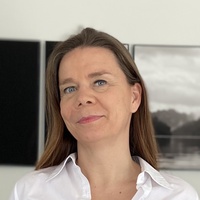Véronique Hoste
- Position
- Research director
- E-mail address
- veronique.hoste@ugent.be
- Telephone number
- +32 9 33 11 941
- Curriculum vitae
- (.pdf)

About Véronique
Veronique Hoste is Senior Full Professor of Computational Linguistics at the Faculty of Arts and Philosophy at Ghent University. She is department head of the Department of Translation, Interpreting and Communication and director of the LT3 language and translation team at the same department. She is also research director of the Faculty of Arts and Philosophy. Veronique holds a PhD in computational linguistics from the University of Antwerp (Belgium) on "Optimization issues in machine learning of coreference resolution" (2005). She has expertise in machine learning of natural language, and more specifically in computational approaches to the modeling of semantics and discourse, such as event detection, entity and event coreference resolution, irony detection, emotion analysis, etc. In 2023-2024, Veronique was appointed by the Université Libre de Bruxelles as their Francqui chair. She has recently been elected as new member of the Royal Flemish Academy of Belgium for Science and the Arts (KVAB).
Veronique has published papers related to different research projects and has different PhD students under her guidance. She currently (co-supervises) PhD students on topics such as the use of fuzzy rough set methods for emotion and sentiment detection; the modelling of common-sense knowledge in automatic irony detection (Common-sense); cross-document event coreference resolution (Encore); the modeling of empathy in multimodal conversational agents (FlandersAI); the modeling of emotion trajectories in customer service dialogues (METRICS), etc. Key to many of these project is also the development of high-quality curated data which can serve the wider NLP community as the basis for the investigation and development of NLP models (see for example (CLARIAH-VL). Veronique also seeks participation in interdisciplinary research projects, e.g. on content-based news recommendation (NewsDNA) or aspect-based sentiment and emotion detection in collaboration with a large group of commercial partners (SentEMO).
Veronique is also keen to communicate research results beyond the academic community, e.g. in the “AI at school” project (see: https://dwengo.org/chatbot/), by providing advice on the new language technology learning outcomes in highschool education, etc. The LT3 team has recently als published a book on NLP for a wide audience, entitled "Taaltechnologie ontrafeld", which is also the first book in Dutch on language technology. End 2024, Ellen De Geyndt (CEO), Veronique and Els Lefever co-founded the first LT3 spin-off AlfaSent, which helps companies in becoming more customer-centric by using AI to analyse customer feedback.